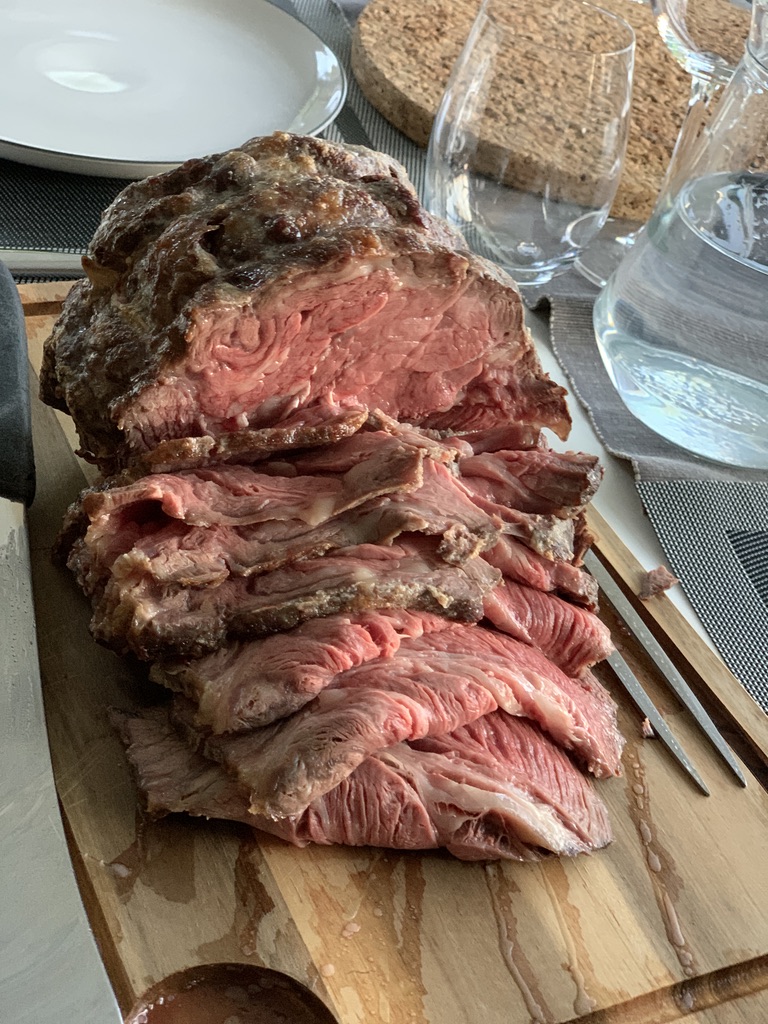
How can wagyu beef be considered 100% Manx?
Just so we’re upfront and transparent, we believe that intensive and industrial farming techniques do no-one any favours because the practices go against our ethos that farming has a responsibility to do right by the natural world. Ballakelly Farm is a proponent of regenerative farming. We are adopting, utilising, and exploring the more sustainable and responsible techniques of non-intensive farming as part of our approach to regenerative agriculture on the Isle of Man.
As Manx farming starts to adopt the principles of regenerative agriculture, the team at Ballakelly Farm are learning about, and sharing our ideas on, better ways to farm, which encompasses less waste, less degradation, and learning about improved ways to respectfully utilize every resource that our animals provide and give up for us, and for humans’ food production everywhere.
A recent improved practice is to better utilise some of the less favourable by-products of the dairy industry which includes the unfortunate lack of commercial and consumer interest in male calves born to dairy heifers. With no market for these animals, farmers are left with no choice but to have them humanely culled or restrictively farmed as veal.
The regenerative agriculture model stimulates a different way of thinking about male calves born to milking heifers.
And here’s what it is:
• Dairy heifers produce the offspring of the bull’s sperm (no surprises there).
• By inseminating the heifers with Wagyu sperm, the heifers produce wagyu-dominant cross calves.
• Wagyu is a much sought after beef, which then makes these male offspring as wagyu calves.
• Because they are wagyu, they have a greater commercial and consumer demand.
• Thus these calves have greater value and purpose in the food chain.
• The result is Manx wagyu.
Wagyu beef is prized for its smooth flavour, rich marbling, and incredible tenderness. The breed, originally from Japan, is famed around the world for its taste and tenderness, and versatility in cooking. The four Japanese breeds that make up the origin of wagyu have regional names, some of which may be familiar. These include Kobe beef, Matsusaka beef, Yonezawa beef, and Sanda beef. Australian beef farmers now make up the second-largest producers of wagyu, farmed in Australia for domestic and international markets across Asia-Pacific, and as far as the UK and continental Europe.
Emissions from farming, and transporting of the product, is receiving greater scrutiny. But did you know, the isle of Man is leading internationally on our strategy of local, low-food-miles food reared and produced in a regenerative manner. We do this with greater food independence, reduced soya feed and other feed imports that are damaging to the landscapes they are grown, and, of course, fewer emissions generated in their transport.
Artificial insemination is a very standard practice in responsible farming as breeding lines and health of the animals are able to be better managed because the outcomes are more predictable. Disease and animal distress is consequently reduced to negligible, which results in stress-free animals that produce more nutritious and highly quality meat.
So, is Ballakelly Farm wagyu 100% Manx. Yes, despite being ‘well-travelled sperm’ it is 100% Manx because the sperm is inseminated here on the island, to existing dairy herds, and are reared and cared for on the island, and finished as food produce for Manx customers here on the island. We don’t export across, even though there is great interest for this.
Responsible farming and regenerative agriculture techniques and practices such as these deployed by the farm team at Ballakelly Farm means that we’re better managing and regenerating our farming environment, and we’re bringing 100% local, low-food-miles produce to the people of the Isle of Man. Our practices are in-line with the spirit of the UNESCO Biosphere, and the Isle of Man governments food security and sustainability policies.
Farming on the isle of man is responsible, sustainable, and better for you and the island than imported produce. We encourage you to make the shift to local, low-food-miles produce.


